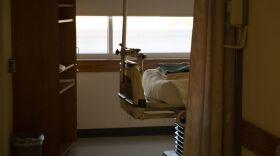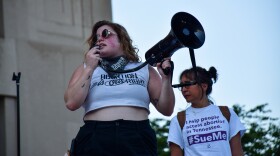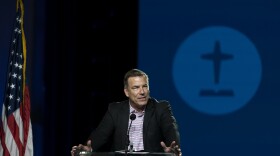
Blake Farmer
Blake Farmer is WPLN's assistant news director, but he wears many hats - reporter, editor and host. He covers the Tennessee state capitol while also keeping an eye on Fort Campbell and business trends, frequently contributing to national programs. Born in Tennessee and educated in Texas, Blake has called Nashville home for most of his life.
-
Medicaid enrollment swelled during the pandemic. And some states are being especially aggressive at policing their rolls.
-
Increasingly, private equity firms shape staffing decisions at hospital emergency rooms, research shows. One apparent effect: Hiring fewer doctors and more health care practitioners who earn far less.
-
The clinics have popped up all over the country, but doctors still don't know the best way to treat these patients, whose symptoms can vary dramatically.
-
Activists are campaigning against clinics that offer care for transgender teenagers. Some families worry that will only fuel efforts to ban gender-affirming care in their state.
-
A probe found troubling lapses in the country's organ transplant system. Blood types mismatched, diseased organs accidentally transplanted and donor organs lost or damaged in transit.
-
Some rural hospitals are in such bad shape, they're selling for next to nothing. One company is snapping several distressed or closed hospitals in rural Tennessee, hoping to turn a profit.
-
Festival promoters are allowing lifesaving medication as fentanyl deaths surge, but volunteers are often left to distribute it, and more controversial forms of harm reduction aren't openly allowed.
-
Reproductive rights proponents worry about the risk of counseling those who seek medication abortions, though they've published online support techniques and guides for safe use of the drugs.
-
The Southern Baptist Convention offered commitments at its closely watched two-day annual meeting in Anaheim, Calif., to address sexual abuse problems kept hidden for years.
-
FEMA has a pool of cash set aside to reimburse burial costs — even retroactively — to the families of COVID victims. But clerical challenges and slow outreach have stymied the application process.










